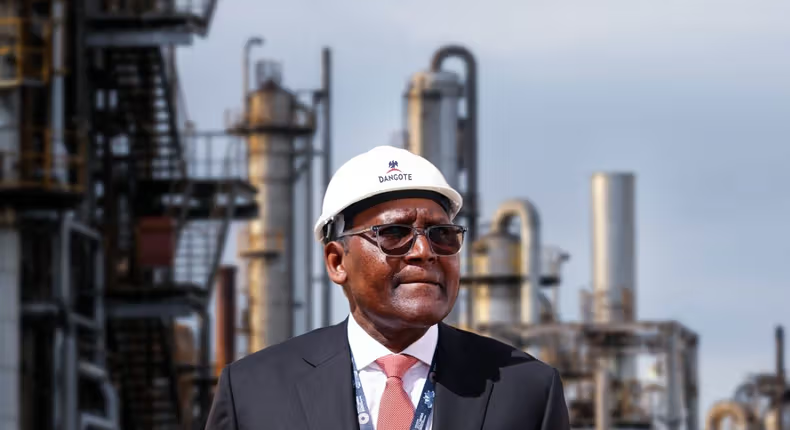Nigeria’s Dangote Refinery is on track to become the sixth-largest oil refinery in the world following a planned capacity upgrade expected to be completed by the end of 2025. The facility, located in Lagos, is currently the largest single-train refinery in Africa with a processing capacity of 650,000 barrels per day. After expansion, that figure is set to rise to 700,000 barrels per day.
This upgrade is part of the Dangote Group’s strategic push to position Nigeria as a key player in the global oil refining industry. The additional 50,000-barrel capacity is being achieved through internal technical optimization without requiring a complete overhaul of the facility. Executive sources at the refinery confirmed that most processing units are already operating above their expected efficiency levels.
Once completed, the expansion will allow the Dangote Refinery to overtake South Korea’s Onsan Refinery, which processes approximately 669,000 barrels per day. This achievement would place the Nigerian facility among the top six refineries in the world by capacity, a significant milestone for the African continent.
Beyond prestige, the refinery is playing a growing role in global fuel markets. It recently exported one million tonnes of refined petrol to international buyers, including those in Asia. The facility sources crude oil from various countries, including the United States, Angola, Brazil, Algeria, and Equatorial Guinea.
Despite its success, the refinery faces operational challenges. According to Aliko Dangote, the cost of lifting fuel directly from the refinery is currently higher than importing from neighboring countries due to local port charges and regulatory delays. These bottlenecks are being addressed to ensure smoother logistics and competitive pricing.
As it ramps up toward full production, the Dangote Refinery is expected to transform Nigeria from a major importer of petroleum products into a major exporter. With its expanded capacity, the refinery is poised to reshape not only the country’s economy but also the dynamics of fuel supply across Africa and beyond.



